ARTICLE AD BOX
Anne Okumu & Brian Khisa
BBC News, Gaborone

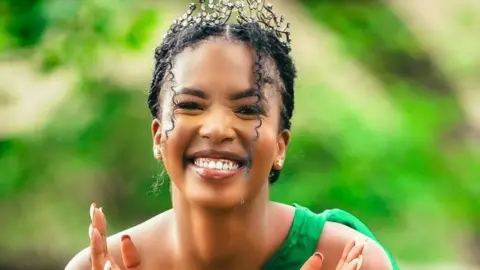 Lesego Chombo/Instagram
Lesego Chombo/Instagram
Lesego Chombo's enthusiasm for life is as infectious as her achievements are impressive: she has won the Miss Botswana 2022 and Miss World Africa 2024 crowns, is a working lawyer, has set up her own charitable foundation - and made history in November, becoming Botswana's youngest cabinet minister.
She was just 26 years old at the time - and had clearly impressed Botswana's incoming President Duma Boko, whose Umbrella for Democratic Change (UDC) had just won a landslide, ousting the party that had governed for 58 years.
It was a seismic shift in the politics of the diamond-rich southern African nation - and Boko, a 55-year-old Harvard-trained lawyer, hit the ground running.
His main focus, he said, was fixing an economy too reliant on diamonds, telling the BBC ahead of his inauguration that he wanted young people to be the solution - "to become entrepreneurs, employ themselves and employ others".
Key to this was finding a suitable ambassador - and Chombo was clearly it: a young woman already committed to various causes.
He made her minister of youth and gender.
"I've never been more proud to be young," she told the BBC at the ministry's headquarters in the capital, Gaborone.
"I'm a young person living in Botswana, passionate about youth development, gender equality, but also so passionate about the development of children."
The beauty queen did not campaign to be an MP - she is what is called a specially elected member of parliament - and is now one of just six female MPs in the 69-member National Assembly.
Chombo said becoming an MP and then minister came as a complete surprise to her.
"I got appointed by a president who had never met me," she said.
"Miss World and the journey that I thought I was supposed to pursue as my final destination was only the platform through which I would be seen for this very role."
It was her crowning as Miss Botswana in 2022 that raised her profile and enabled her to campaign for social change, while trying to inspire other young women.
It also gave her the opportunity to set up the Lesego Chombo Foundation, which focuses on supporting disadvantaged youngsters and their parents in rural areas – and which she is still involved with, its projects funded by corporate companies and others.
"We strive to have a world where we feel seen and heard and represented. I'm very thrilled that I happen to be the very essence of that representation," she said.

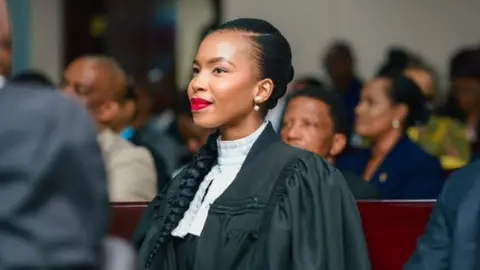 Lesego Chombo/Instagram
Lesego Chombo/Instagram
Lesego Chombo, now 27, is an associate at a law firm in Gaborone
As she prepared for last year's Miss World pageant, she said: "I really put myself in the zone of service. I really channelled it for this big crown."
Now in political office, she is aware of the expectations placed on her in a country where approximately 60% of the population is below 35 years.
It also has a high level of unemployment - 28%, which is even higher for young people and women who have limited economic opportunities and battle systemic corruption.
Chombo said this was something she was determined to change: "Currently in Botswana, the rates of unemployment are so high.
"But it's not just the rate of unemployment, it's also just the sphere of youth development.
"It's lacking, and so my desire is to create an ecosystem, an environment, a society, an economy in which youth can thrive."
Chombo said her plan was to develop a comprehensive system that nurtured youth-led initiatives, strengthened entrepreneurship and ensured young people had a seat at the table when decisions were being made.
With Botswana's anti-corruption policy undergoing a rigorous review, she said this would ensure that quotas for young entrepreneurs - when state departments and agencies put out tenders for goods and services - were actually reached.
The government has begun a 10-month forensic audit of government spending that will include 30 state-owned enterprises.
Indeed President Boko is intent on cracking down on corruption, seeing this as a way to bolter investor confidence and diversify the economy - something his deputy has been seeking to do on recent trips to the United Arab Emirates (UAE) and Switzerland.
And a key deal has now been secured with UAE-based CCI Global, a provider of business process outsourcing, to open a hub in Botswana.
While youth development is a central pillar of her work, gender equity also remains close to her heart.
Her short time in office has coincided with a growing outcry over gender-based violence.
According to a United Nations Population Fund (UNFPA) report, over 67% of women in Botswana have experienced abuse, more than double the global average.
"It hurts to know that it could be me next," she admitted.
A month into her appointment, she was criticised for voting against an opposition motion in parliament to create "peace desks" at police stations and magistrate courts to quickly deal with victims.
At the time she said such provisions already existed within the law and what was needed was more public awareness.
This was followed in January by a police report noting that at least 100 women had been raped and another 10 murdered during the festive season - this caused public outrage with many lashing out at her on social media over the issue.
The minister reiterated - on several occasions, including before parliament in March - that Botswana had many laws and strategies in place and what was important was to ensure these they were actually applied.
But she told the BBC the government would be pushing for the implementation of a Gender-Based Violence Act, aimed at closing legal loopholes that have long hindered justice for survivors.
She said she was also advocating a more holistic approach, involving the ministries of health, education and local government.
"We want curriculums that promote gender equity from a young age," Chombo said.
"We want to teach children what gender-based violence is and how to prevent it.
"It will boil down to inclusion of teaching gender equity at home, how parents behave around their children, how they model good behaviour."

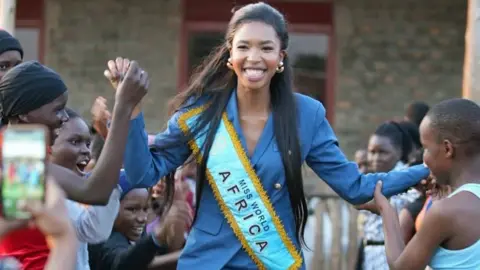 Lesego Chombo/Instagram
Lesego Chombo/Instagram
Lesego Chombo has used her fame to push her projects for social change - focusing on young people
She has also been vocal about the need to address issues affecting men, particularly around mental health and positive masculinity, encouraging chiefs "to ensure that our patriarchal culture is not actively perpetuating gender violence".
"I hear a lot of people say: 'Why do you speak of women more than men?'
"It's because as it stands in society, women are mostly prejudiced [against].
"But when we speak of gender equality, we're saying that it should be applied equally for everyone. But what we strive for is gender equity."
Chombo, who studied law at the University of Botswana, said she was thankful to her mother and other strong women for inspiring her - saying that women had to work "10 times harder" to succeed.
"[My mother] has managed to create an environment for me to thrive. And growing up, I got to realise that it's not an easy thing.
"As women, we face so many pressures: 'A woman cannot do this. A woman can't do that. A woman can't be young and in leadership.' I'm currently facing that."
She also credited Julia Morley, the CEO of Miss World, for helping her: "She has managed to create a legacy of what we call beauty with a purpose for so many young girls across the world.
"She has just inspired us so deeply to take up social responsibility."
Chombo is serious about this. The beauty queen-cum-lawyer-cum-minister knows she has made history - but is also aware that her real work has only just begun.
"Impact. Tangible impact. That's what success would look like to me," she said.
"I want to look back and see that it is there and it is sustainable. That when I leave, someone else is able to carry it through."
Additional reporting from Innocent Selatlhwa in Gaborone
You may also be interested in:

 Getty Images/BBC
Getty Images/BBC

 6 hours ago
6
6 hours ago
6
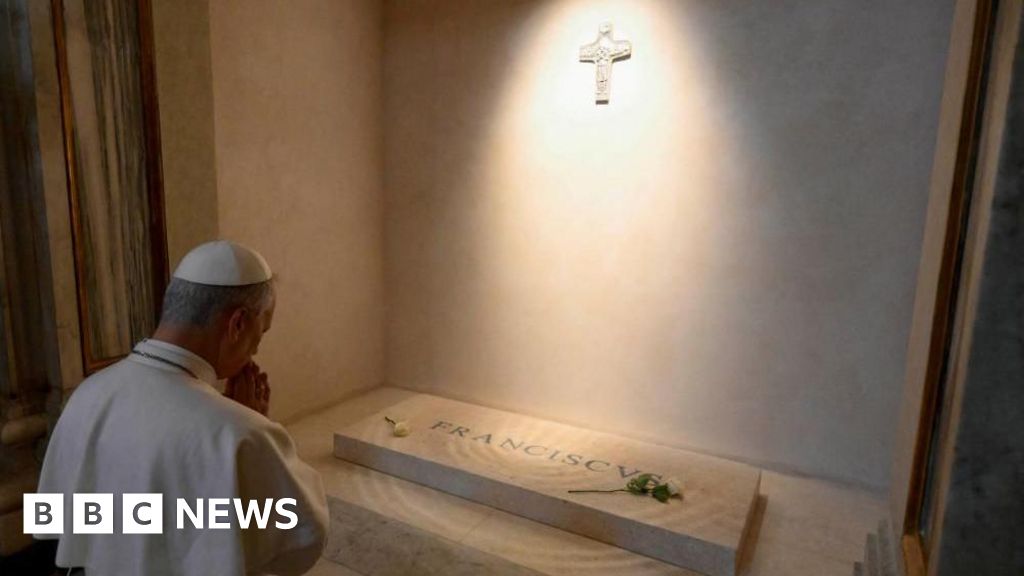
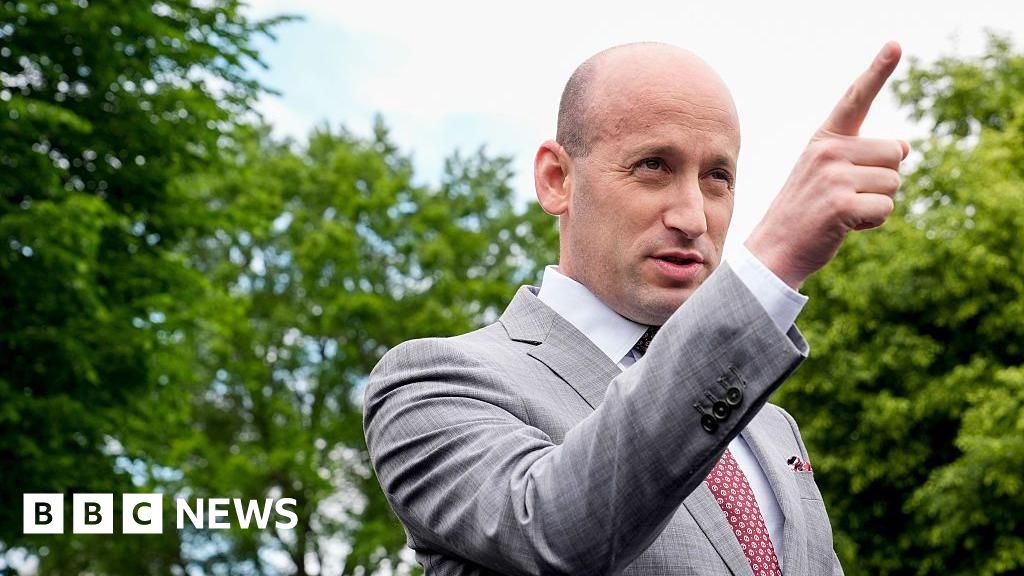
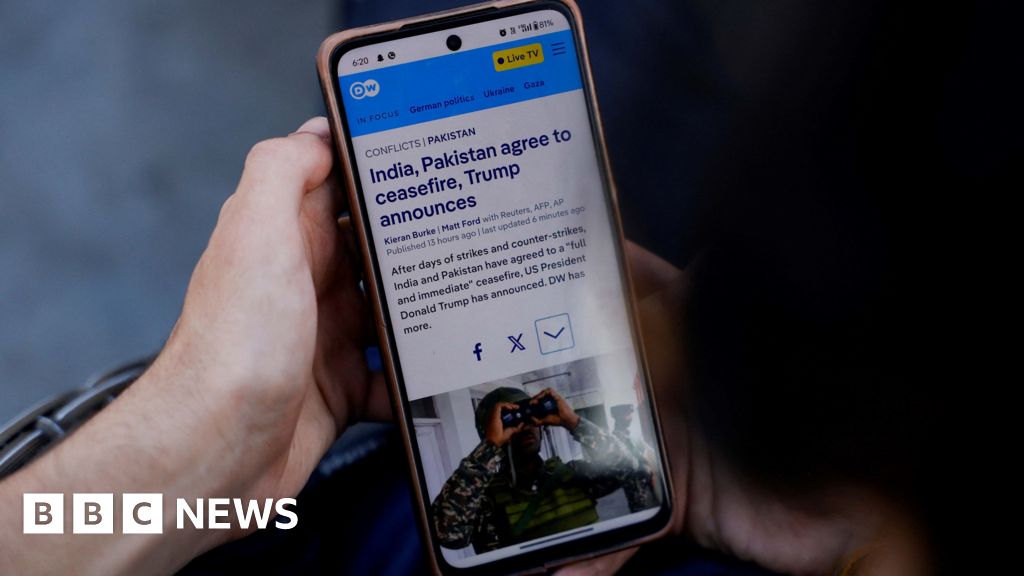





 English (US) ·
English (US) ·